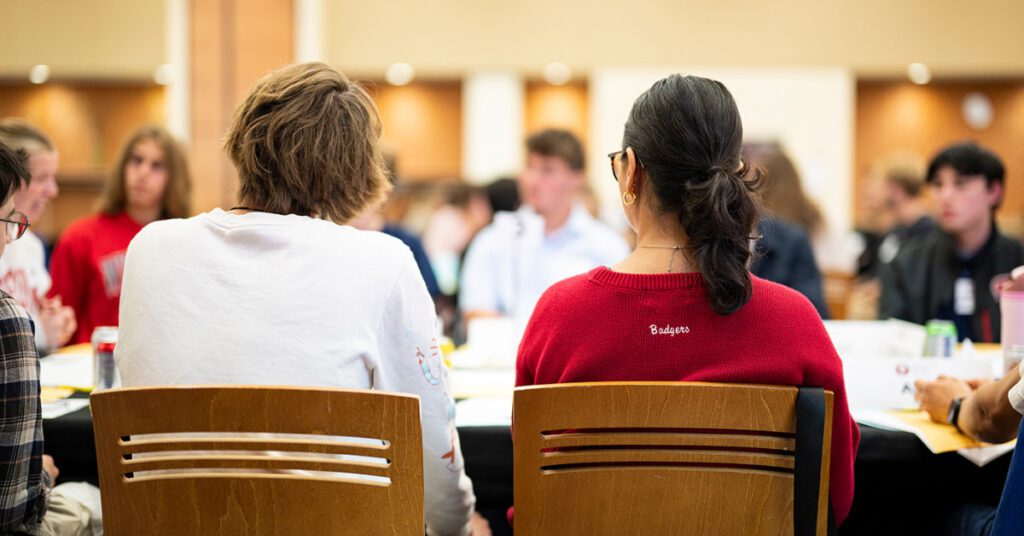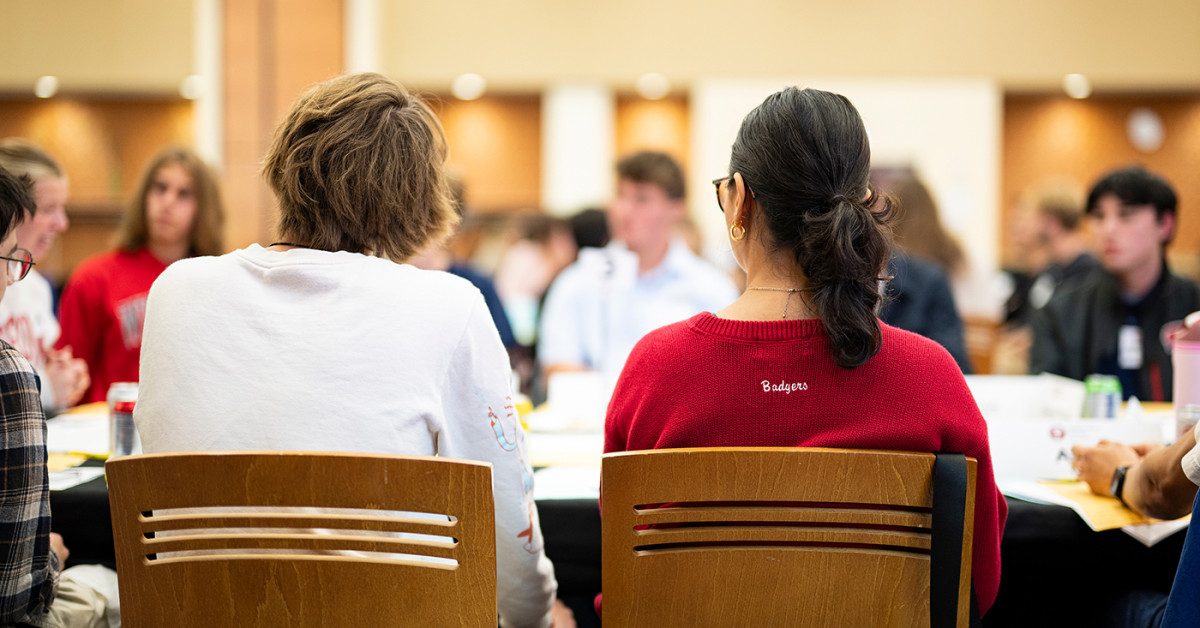
At a university large enough to warrant its own zip code, how do you help an entire campus, full of people with different viewpoints and perspectives, learn to engage effectively across difference?
You turn civil dialogue into daily practice — at events that model how to discuss difficult issues, in courses that teach civic engagement as an essential skill, by offering tools and techniques that help users practice conversations before taking them live, through partnerships with organizations advancing this work on a national scale.
And you invite the whole campus community to help shape how broad viewpoint diversity, or pluralism, and dialogue across difference thrive at UW–Madison.
“Learning happens best when people with different beliefs, experiences and backgrounds come together.”
— Chancellor Jennifer L. Mnookin
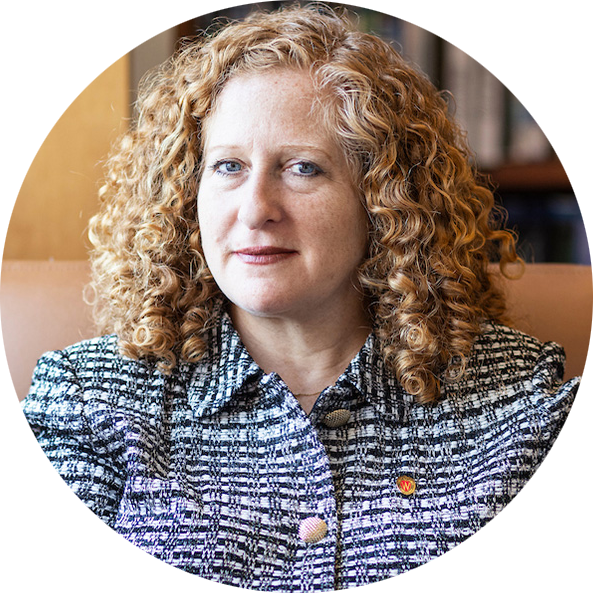
These are the goals behind the University of Wisconsin–Madison’s new initiative, the Wisconsin Exchange: Pluralism in Practice, which aims to help students, faculty and staff learn to engage, live and lead in a polarized world. The effort connects existing programs and cultivates new opportunities to make constructive conversation a visible and integral part of everyday life on campus.
“Learning happens best when people with different beliefs, experiences and backgrounds come together,” says Chancellor Jennifer L. Mnookin. “The Wisconsin Exchange aims to build robust opportunities for members of our community to share their perspectives, listen and learn from one another, and grow and collaborate through meaningful dialogue across their differences. It will unite existing efforts and build new approaches to make civil dialogue part of everyday life on campus.”
Why now?
The launch of the Wisconsin Exchange, made possible with initial funding from generous donors, comes at a pivotal time. National surveys show that Americans are deeply polarized and friendships across the political aisle are rare.
On college campuses, the divide is just as stark: Nearly half of students say they would not “dorm across the aisle” or go on a date with someone who voted differently in the 2020 presidential election.
At UW–Madison, a 2023 survey from the Universities of Wisconsin found that 43% of students believed speakers with offensive views should, at least in some circumstances, be disinvited from campus. Yet most students also report that exposure to diverse viewpoints is essential to their education.
“Our students come to campus with energy and conviction,” says interim Provost John Zumbrunnen. “But many arrive having had few chances to interact with people who don’t share their background or views. Our task is to help them build skills and then give them opportunities to grow into the thoughtful leaders and citizens our democracy, and our world, needs.”
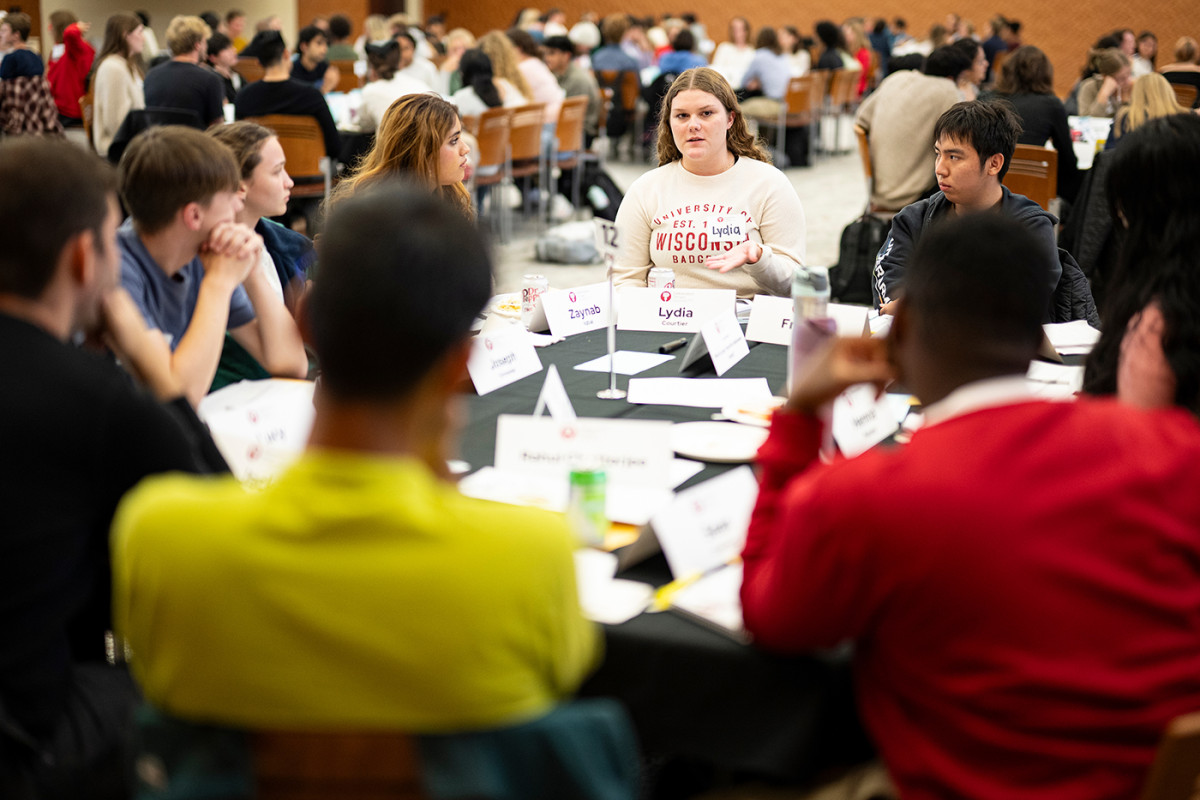
A culture of civil dialogue
Building on UW–Madison’s long tradition of open inquiry, the Wisconsin Exchange creates space for people with differing viewpoints to challenge, inform and learn from one another — a principle central to the university’s values since at least 1894, when President Charles Kendall Adams affirmed its duty to welcome “a vast diversity of views” and to “follow the indications of truth wherever they may lead.”
“More than 130 years later, we continue to believe that civil discourse is one of this university’s most vital contributions — to our students, to our state, to the search for truth, and to our nation’s pluralist democracy,” Mnookin says. “The state of Wisconsin and UW–Madison are home to a wide range of voices, and we see that as a strength that we should lean into and further develop.”
At UW–Madison, this commitment has been embodied in recent years by programs like Deliberation Dinners (run by The Discussion Project), which bring undergraduate students with different ideological and political perspectives together for a meal and focused discussions about important and sometimes contentious political issues.
The Wisconsin Exchange will amplify efforts like these while also expanding programs, events and activities across the university to create a sustained culture of pluralism.
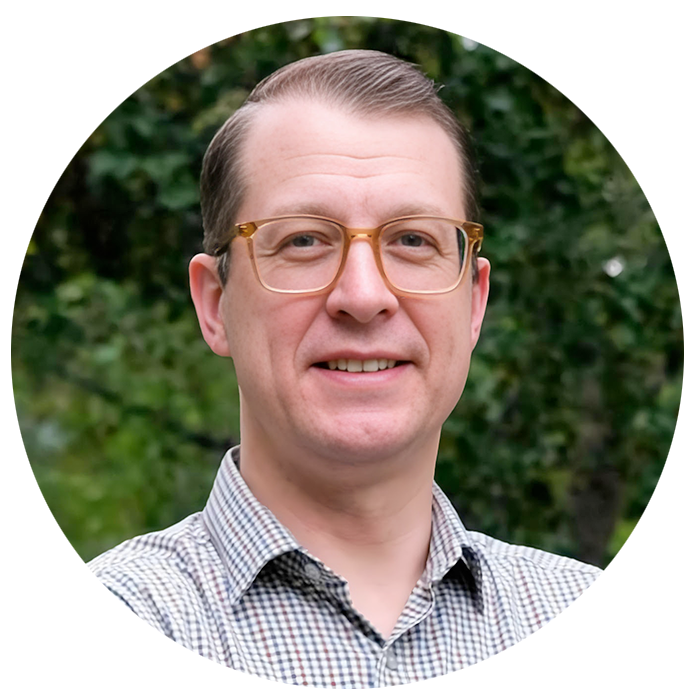
“Open dialogue and constructive debate are essential to the university’s core mission — the search for truth. “
— Alex Tahk, associate professor of political science; Wisconsin Exchange steering committee member
For example, the Wisconsin Exchange grant competition launching this fall invites all faculty, staff and students to submit ideas and proposals for projects that strengthen viewpoint diversity and foster opportunities for civil discourse across campus.
Grant recipients for the Wisconsin Exchange will be announced early in the spring semester.
“Open dialogue and constructive debate are essential to the university’s core mission — the search for truth,” says political science professor and Wisconsin Exchange steering committee member Alex Tahk. “This is a welcome initiative toward that end, and I hope it will help strengthen intellectual inquiry and broaden the range of perspectives on campus.”
Creating and strengthening opportunities
The Wisconsin Exchange will continue to expand over the next several years, though additional efforts mark its launch, including:
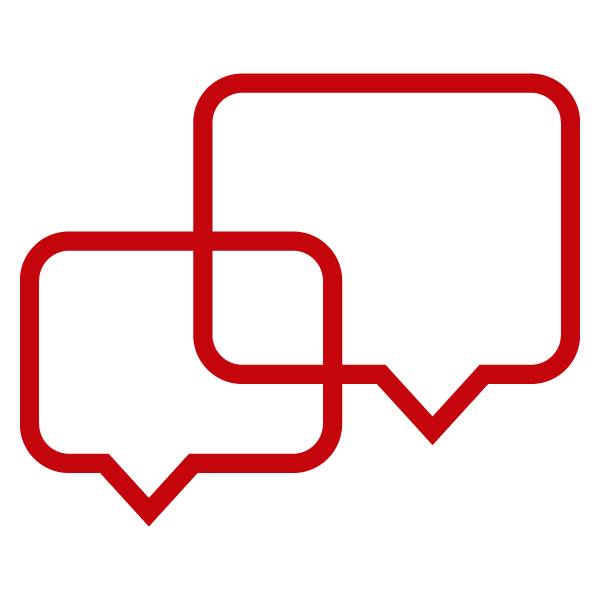
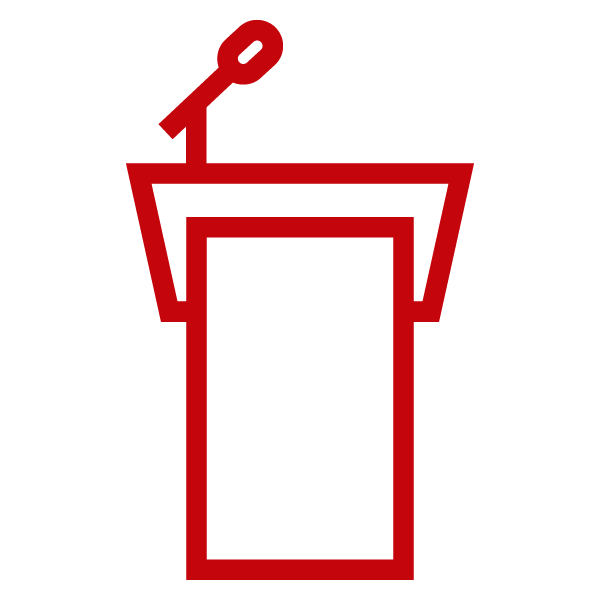
A speaker series that will launch this spring. Confirmed speakers include Greg Lukianoff, CEO of the Foundation for Individual Rights and Expression (FIRE), co-sponsored with the La Follette School of Public Affairs, and Colleen Shogan, former Archivist of the United States, with more to come;
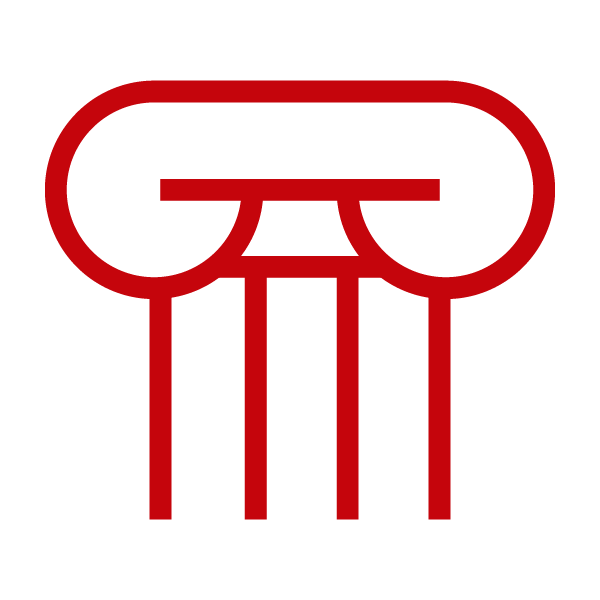
A new postdoctoral fellowship program to support scholars whose work engages pluralism across disciplines—ranging from the social sciences and humanities to fields such as public health. Applications and further details will be available by early spring 2026 and the program will begin in fall 2026;
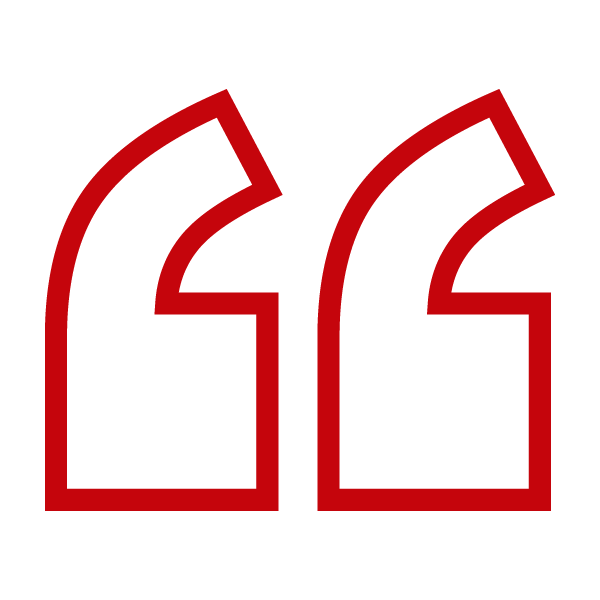
The Wisconsin Exchange “Pluralism in Practice” Workshop, for students, staff and faculty to hear from thought leaders and engage in discourse and education embracing viewpoint diversity and constructive engagement across differences, slated for March 2026; and
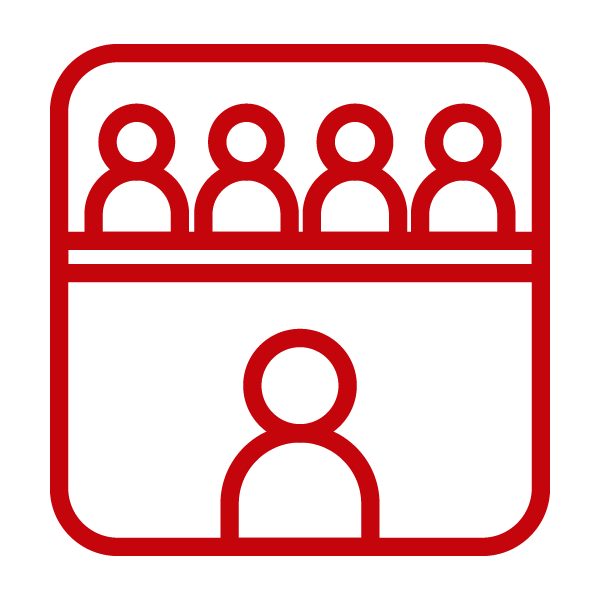
A pluralism and civil discourse track at the spring 2026 UW–Madison Teaching and Learning Symposium.
The Wisconsin Exchange is also building bridges beyond campus through partnerships with national organizations. For example, a collaboration with Citizens & Scholars will allow UW–Madison students to pilot a new AI-powered civil discourse tool that helps users rehearse real-world conversations and receive real-time feedback.
And in the spring, UW–Madison will work with the Ronald Reagan Presidential Foundation and Institute’s Center on Civility and Democracy to host a Common Ground Forum, featuring a conversation on bipartisanship, mutual respect, and productive, results-oriented cooperation despite ideological differences.
“Among the things we aim to do in the classroom is create opportunities to learn from each other and be willing to consider other points of view. Sometimes, this helps us sharpen our existing opinions, and other times, we change our minds. “
— Allison Prasch, associate professor of rhetoric, politics and culture; Wisconsin Exchange steering committee member
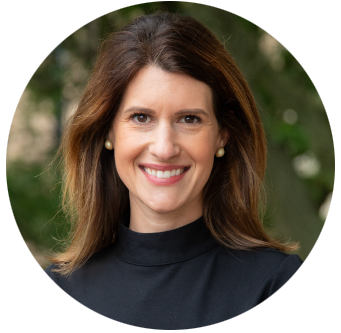
“Among the things we aim to do in the classroom is create opportunities to learn from each other and be willing to consider other points of view,” says Allison Prasch, a professor in the Department of Communication Arts and steering committee member. “Sometimes, this helps us sharpen our existing opinions, and other times, we change our minds. The launch of the Wisconsin Exchange is an exciting opportunity to bring more intentionality to this work across the university, in and out of the classroom.”
The Wisconsin Exchange builds on other aspects of UW–Madison‘s long-standing commitment to free expression, academic freedom and civic engagement, drawing from a range of ongoing campus efforts, including:
- The newly formed Pluralism and Unity Advisory Council in Student Affairs, bringing together student leaders from across political, cultural, religious and geographic backgrounds to advise on initiatives that foster belonging and unity, model pluralism, and help shape student success at UW–Madison
Pluralism-focused efforts are also underway in schools, colleges, and units across campus, such as the speaker series hosted by the Center for Research on the Wisconsin Economy (CROWE) and the Tommy G. Thompson Center, the Center for the Study of Liberal Democracy’s Civic and Economic Literacy Initiative events, La Follette’s Main Street Agenda program, and the Division of Extension’s forthcoming Civil Dialogue effort.
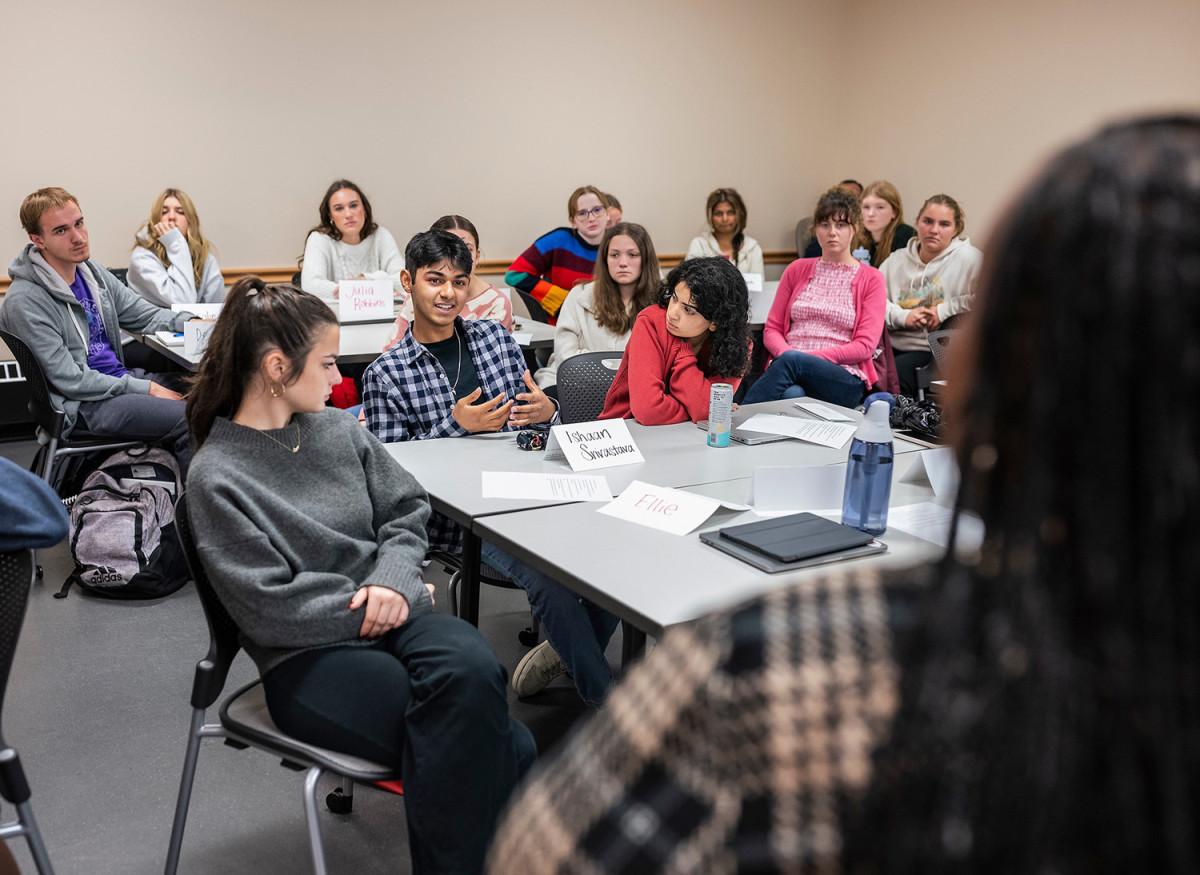
Building on a strong foundation
As the 2025 Deliberation Dinner series kicked off earlier this month, one such display of pluralism in action was on the menu. About 140 students gathered over chicken and couscous to weigh whether marijuana should be legalized — one of three cohorts that will engage 375 students total in the program
The meal and light-hearted conversation, covering topics from favorite Halloween candy to bucket-list trips, set the table for the deeper work: learning objectives and norms, a quick survey and partner share about what the government should and shouldn’t regulate, and finally, the main discussion.
Consensus wasn’t the goal. What was? Ensuring everyone had a voice, listening to understand and engaging in constructive conversation about a divisive topic.
Around those tables — and in the classrooms, forums and conversations yet to come — the Wisconsin Exchange’s vision of “pluralism in practice” is already taking shape.

